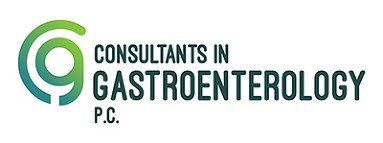QUALITY CARE
Get the comprehensive, compassionate care you deserve for all of your acute or chronic gastroenterological needs.

Diverticulosis
Diverticulosis is a common condition affecting the digestive tract of older Americans. More than half of people aged 60 and over have the condition and almost everyone will have diverticulosis by age 80. Although diverticulosis is very common, not everyone with diverticulosis will develop diverticulitis.
What is Diverticulosis? How do Diverticulosis and Diverticulitis differ?
Over time, pouches can begin to develop in the walls of the digestive tract. These pouches, called diverticula, are small and usually painless. When multiple pouches form in the colon, the condition is referred to as diverticulosis. What causes these pouches to form in the first place is not fully understood, but many physicians believe a diet with adequate fiber in the diet can help prevent or slow the development of diverticula.
Most people with diverticulosis never experience any discomfort or symptoms. However, sometimes diverticulosis can develop into a condition known as diverticulitis. Diverticulitis can occur if the pouches in the digestive tract walls, diverticula, are inflamed or become infected. Diverticulitis can cause abdominal pain, fever, nausea and altered bowel habits.
Symptoms
Most people with diverticulosis do not have any symptoms. Usually only discovered with colonoscopy or barium enema, it is possible to live for years without knowing you have the condition.
Diverticulitis, on the other hand, has very noticeable symptoms which include abdominal pain, fever, nausea, diarrhea, constipation, bloating and changes in bowel habits.
Causes
Diverticulosis is believed to be caused, at least in part, by inadequate fiber in the diet. Diets lacking in fiber can lead to constipation, which in turn increases pressure on the digestive tract. Over time this pressure can cause the walls of the digestive tract to weaken and allow diverticula to form.
Diverticulitis is caused when the diverticula in the digestive tract become inflamed or infected. The causes of inflammation and infection are not known but it is believed that the small size of the diverticula could reduce blood supply to the area and cause inflammation; or diverticula could trap pieces of fecal matter and lead to infection.
Treatment
For most without symptoms, treating diverticulosis is unnecessary. In more serious cases, treatment usually begins with avoiding constipation by increasing fiber intake, drinking plenty of fluids and exercising to help maintain regularity.
Treatment for diverticulitis varies depending on the seriousness of the symptoms. In most cases a round of antibiotics and going to a liquid or low-fiber diet for a few days will ease any discomfort. For more serious cases or recurrent infections, there may be risk of an abscess or bowel obstruction forming. In these cases your physician will discuss your medical history with you and recommend the best course of treatment. Once formed, diverticula are present for life so making small diet and lifestyle changes may be helpful in preventing future infection and inflammation.
